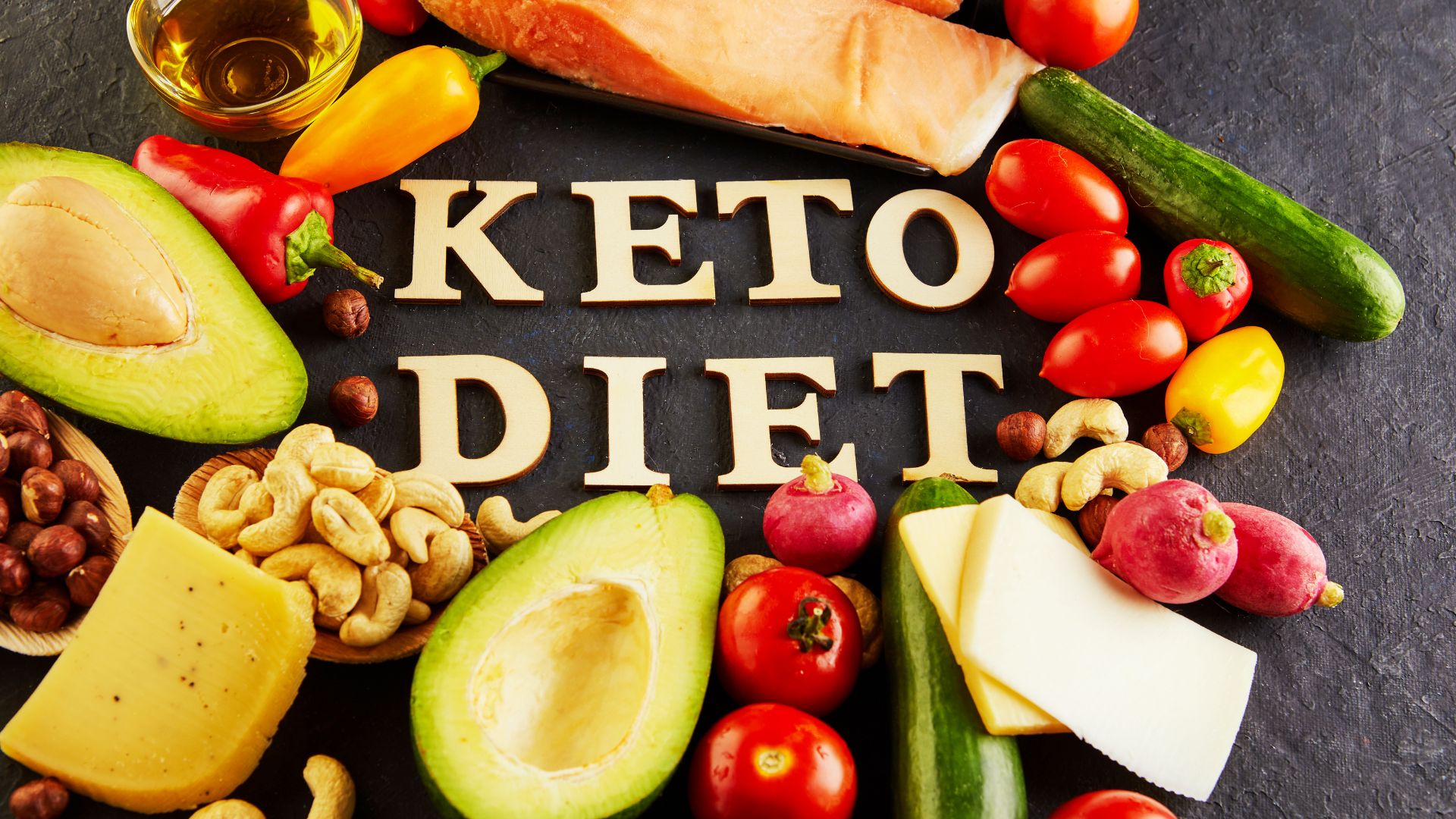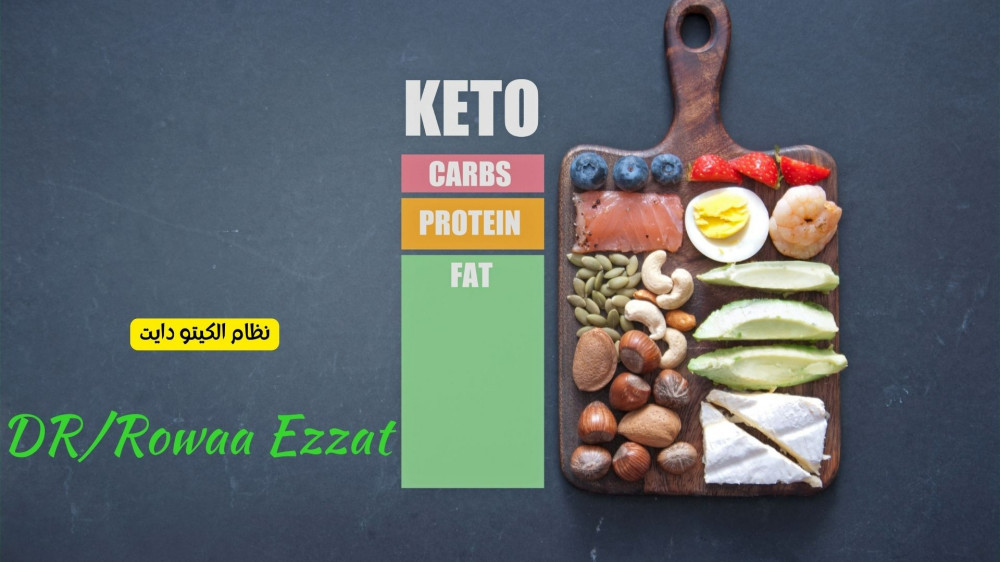Keto diet
The ketogenic diet or "keto" is a low-carb, high-fat diet that has been used for centuries to treat specific medical conditions. In the 19th century, the ketogenic diet was commonly used to help control diabetes. In 1920, it was introduced as an effective treatment for epilepsy in children for whom the drug was not effective. The ketogenic diet has also been tested and used in closely monitored settings for cancer, diabetes, polycystic ovary syndrome, and Alzheimer's disease.
However, this diet is gaining significant attention as a potential weight loss strategy due to the results of the low-carb diet, which began in the 1970s with the Atkins diet (a low-carb, high-protein diet, which achieved commercial success).
Other low-carb diets, including Paleo, South Beach, and Dukan, are all high in protein but moderate in fat. In contrast, the ketogenic diet is characterized by its exceptionally high fat content, usually 70% to 80% fat, despite eating only a moderate amount of protein.
What is the ketogenic diet?
The ketogenic diet changes the way your body uses food to convert it into energy. Carbohydrates in your diet usually provide most of the fuel your body needs. The keto diet reduces the number of carbohydrates you eat and switches your body to burning fat for fuel instead.
The keto diet is high in fat, moderate in protein and low in carbohydrates. The standard keto diet consists of 70% to 80% fat, 10% to 20% protein, and 5% to 10% carbohydrates.
Many nutrient-dense foods contain high amounts of carbohydrates. This includes whole grains, fruits, and vegetables. Carbohydrates from all sources are restricted on the keto diet. So you will have to stop eating bread, cereals and other grains and make significant reductions in your intake of fruits and vegetables.

What is ketosis?
Ketosis is a metabolic state in which the body uses fat as fuel instead of carbohydrates.
It occurs when you significantly reduce your carbohydrate consumption, limiting the body's supply of glucose (sugar), the main source of energy for cells.
Following the keto diet is the most effective way to enter ketosis. In general, this involves limiting carbohydrate consumption to about 20 to 50 grams per day and eating fats, such as meat, fish, eggs, nuts, and healthy oils.
It is also important to moderate your protein intake. This is because protein can be converted into glucose if eaten in large amounts, which may slow your transition into ketosis.
Practicing intermittent fasting may help you enter ketosis faster. There are many different forms of intermittent fasting, but the most common method involves limiting food intake for about 8 hours per day and fasting for the remaining 16 hours.
Blood, urine, and breath tests are available, which can help determine if you have entered ketosis by measuring the amount of ketones your body produces.
Some symptoms may also indicate that you are entering ketosis, including increased thirst, dry mouth, frequent urination, and decreased hunger or appetite.
Types of keto diet
There are several versions of the keto diet, including:
1. Standard Ketogenic Diet (SKD):
It is a diet that is low in carbohydrates, moderate protein, and high in fat. It typically contains 70% fat, 20% protein, and only 10% carbohydrates (9Trusted Source).
2. Cyclic ketogenic diet (CKD):
This diet includes periods of high-carb refeeding, such as 5 ketogenic days followed by 2 high-carb days.
3. Targeted Ketogenic Diet (TKD):
This diet allows you to add carbohydrates during training.
4. High-protein ketogenic diet:
It is similar to the standard ketogenic diet, but contains more protein. The ratio is often 60% fat, 35% protein, 5% carbohydrates.
However, only standard and high-protein ketogenic diets have been extensively studied. Cyclic or targeted ketogenic diets are more advanced methods and are primarily used by bodybuilders or athletes.
The information in this article applies mostly to the standard ketogenic diet (SKD), although many of the same principles also apply to other versions.
Other health benefits of the keto diet
The ketogenic diet actually originated as a tool to treat neurological diseases like epilepsy.
Studies have now shown that the diet can have benefits for a variety of different health conditions:
1. Heart disease:
The ketogenic diet can help improve risk factors such as body fat, HDL (good) cholesterol levels, blood pressure, and blood sugar.
2. Cancer:
The diet is currently being explored as an additional treatment for cancer, because it may help slow tumor growth.
3. Alzheimer's disease:
The keto diet may help reduce the symptoms of Alzheimer's disease and slow its progression.
4. Epilepsy:
Research has shown that the ketogenic diet can lead to a significant reduction in seizures in children with epilepsy.
5. Parkinson's disease:
Although more research is needed, one study found that diet helped improve Parkinson's disease symptoms.
6. Polycystic ovary syndrome:
The ketogenic diet can help reduce insulin levels, which may play a major role in PCOS.
7. Brain injuries
Some research suggests that diet can improve outcomes of traumatic brain injury.
Foods prohibited in keto
You should limit your intake of any food that is high in carbohydrates.
Here is a list of foods that should be reduced or eliminated on the ketogenic diet:
· Sugary foods: soda, fruit juice, smoothies, cake, ice cream, and candy.
· Grains or starches: wheat-based products, rice, pasta, and cereals.
· Fruit: All fruit, except small parts of berries such as strawberries
· Beans or legumes: peas, beans, lentils, and chickpeas.
· Root vegetables and tubers: potatoes, sweet potatoes, carrots, parsnips.
· Low-fat or diet products: low-fat mayonnaise, salad dressings, and seasonings
· Some seasonings or sauces: BBQ sauce, honey mustard, teriyaki sauce, ketchup.
· Unhealthy fats: processed vegetable oils, mayonnaise.
· Alcohol: beer, wine, liquor and mixed drinks.
· Sugar-free diet foods: sugar-free candy, juices, puddings, sweeteners, desserts
Foods allowed in keto
The majority of your meals should be based on these foods:
· Meat: red meat, steak, ham, sausage, bacon, chicken, and turkey
· Fatty fish: salmon, trout, tuna and mackerel
· Eggs: whole eggs or omega-3 eggs
· Butter and cream: Grass-fed butter and heavy cream
· Cheese: Unprocessed cheeses such as cheddar, goat, cream, blue, or mozzarella
· Nuts and seeds: almonds, walnuts, flax seeds, pumpkin seeds, chia seeds, etc.
· Healthy oils: extra virgin olive oil and avocado oil
· Avocado: Whole avocado or fresh guacamole
· Low-carb vegetables: green vegetables, tomatoes, onions, peppers, etc.
· Spices: salt, pepper, herbs and spices.
Risks of the keto diet:
The ketogenic diet has many risks because it contains a high percentage of saturated fats. Specialists also recommend that the percentage of saturated fats not exceed 7% of daily calories because they are linked to heart disease. Indeed, the keto diet is associated with an increase in LDL cholesterol, which is harmful to heart disease.
Potential risks of keto include:
Nutrient deficiency. Specialists say: “If you do not eat a wide variety of vegetables, fruits and grains, you may be at risk of micronutrient deficiencies, including selenium, magnesium, phosphorus, and vitamins B and C. And liver problems. With so much fat being metabolized, the diet It can make any existing liver condition worse.
And also kidney problems. The kidneys also help in metabolizing protein, and specialists say that the keto diet may burden them with regard to protein metabolism. Where (the current average recommended intake of protein is 46 grams per day for women and 56 grams for men).
It may also cause constipation. The keto diet is low in foods that contain fiber such as grains and legumes.
It can also cause mood swings. Specialists say: The brain needs sugar from healthy carbohydrates to perform its functions. Low-carb diets may cause confusion.
So be sure to talk to a doctor and nutritionist before trying a ketogenic diet.
Staying on the keto diet long-term may have some other effects, including:
· Low protein in the blood
· Excess fat in the liver
· kidney stones
· Micronutrient deficiency
References:
Ø https://www.health.harvard.edu/staying-healthy/should-you-try-the-keto-diet
Ø https://my.clevelandclinic.org/health/articles/24003-ketosis
Ø https://www.webmd.com/diet/ss/slideshow-ketogenic-diet
Ø https://www.hsph.harvard.edu/nutritionsource/healthy-weight/diet-reviews/ketogenic-diet/
By Dr.Rowaa Ezzat

